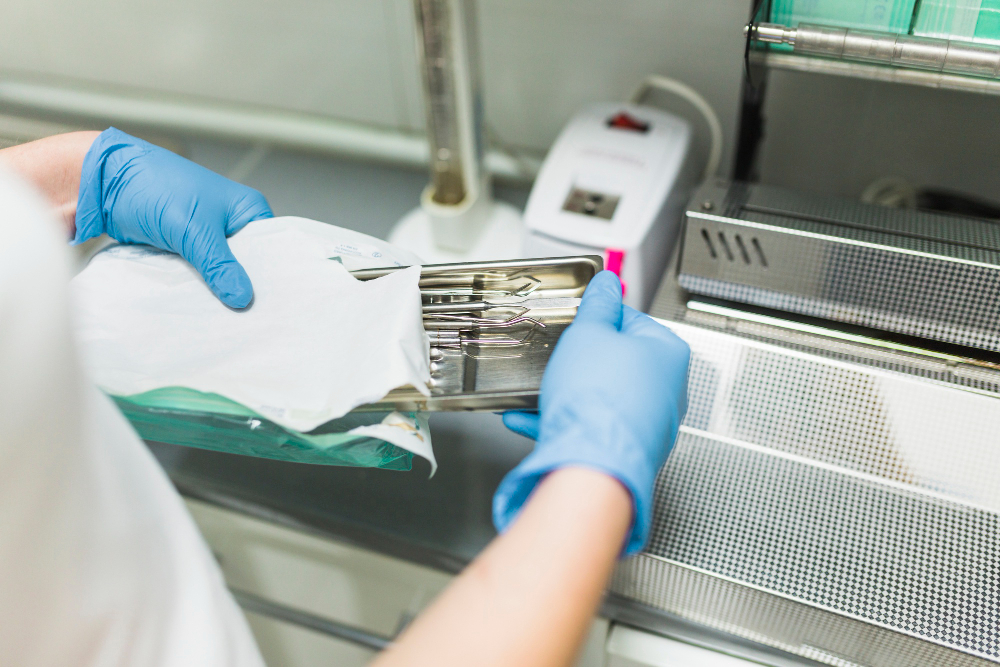
The Crucial Role of Sterilisation Methods
In the world of scientific research, healthcare, and various industries, the importance of sterilisation methods cannot be overstated. Sterilisation methods serve as a cornerstone for maintaining a safe and hygienic environment by eliminating or inactivating microorganisms that can lead to contamination, infection, and compromised results. In this blog, we delve into the significance of sterilisation methods, their diverse applications, and the critical role they play in ensuring safety and quality across different sectors.
1. Ensuring Safety and Preventing Contamination
Sterilisation methods are the first line of defence against microbial contamination. Laboratories, healthcare facilities, and industries dealing with sensitive materials or products must prevent the introduction of harmful microorganisms. By utilising effective sterilisation techniques, these environments can guarantee that the products, equipment, and tools used are free from pathogens, ensuring the safety of both workers and end-users.
2. Maintaining Data Integrity and Reliable Results
Laboratories conducting experiments, tests, and analyses rely on accurate and reproducible results. Any contamination, even at a microscopic level, can significantly skew outcomes. Sterilisation prevents unintended cross-contamination between samples, reagents, and equipment, preserving the integrity of research data and ensuring the validity of conclusions drawn from experiments.
3. Protection in Healthcare Settings
In healthcare, proper sterilisation is paramount to safeguarding patient health. Medical instruments, surgical tools, and even surfaces must be thoroughly sterilised to prevent the transmission of infections. By adhering to rigorous sterilisation protocols, healthcare professionals can significantly reduce the risk of post-operative infections, ensuring better patient outcomes.
4. Compliance with Industry Standards and Regulations
Various industries, including pharmaceuticals, food and beverage, and cosmetics, are subject to stringent regulatory guidelines. Sterilisation methods are often a requirement to meet these standards. Failure to implement proper sterilisation processes can result in regulatory violations, product recalls, and damage to brand reputation. Adhering to these standards is not just a legal obligation but also a testament to a commitment to quality.
5. Extending Shelf Life and Product Stability
In sectors where shelf life and product stability are critical, such as the food industry, sterilisation plays a pivotal role. Certain sterilisation methods, such as heat treatment, can extend the shelf life of perishable goods by deactivating spoilage-causing microorganisms. This not only reduces waste but also ensures that consumers receive safe and high-quality products.
6. Innovative Sterilisation Technologies
The field of sterilisation continues to evolve with the introduction of innovative technologies. From advanced autoclaves to chemical vapour sterilisers, plasma sterilisation, and UV-C disinfection systems, professionals have an array of options to choose from. These technologies offer faster, more efficient, and environmentally friendly alternatives to traditional methods.
Sterilisation methods are the unsung heroes behind safe and successful operations in laboratories, healthcare facilities, and industries worldwide. Their significance in preventing contamination, ensuring data accuracy, and complying with regulations cannot be overstated. By embracing the latest advancements in sterilisation technology and adhering to rigorous protocols, professionals can create environments that prioritise safety, quality, and excellence in their respective fields. As we move forward, let’s continue to recognise the vital role that sterilisation methods play in shaping a healthier and more productive world.
For more information on our sterilisation services, please visit our services page or get in touch.
Share: